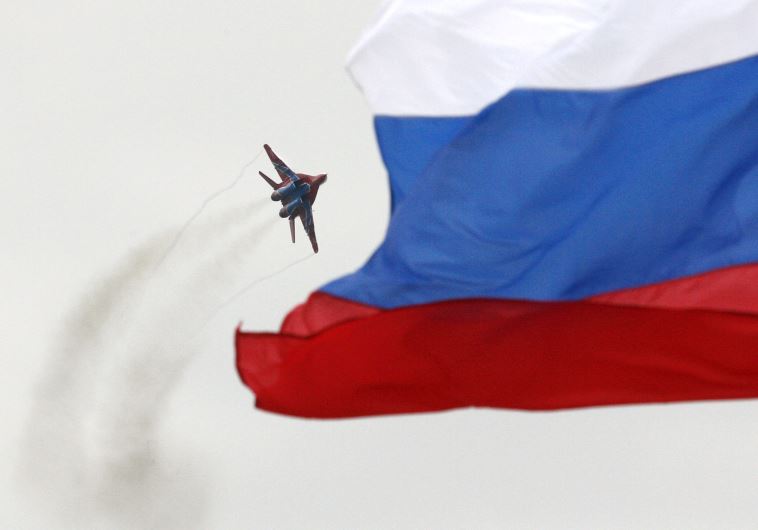Top NATO general: Russia building anti-access bubble over Syria
An Israeli-Russian military working group is designed to coordinate Syria-related activities.
 A MiG-29 fighter jet performs a manoeuvre as the Russian national flag flies in the foregroundUpdated:
A MiG-29 fighter jet performs a manoeuvre as the Russian national flag flies in the foregroundUpdated: